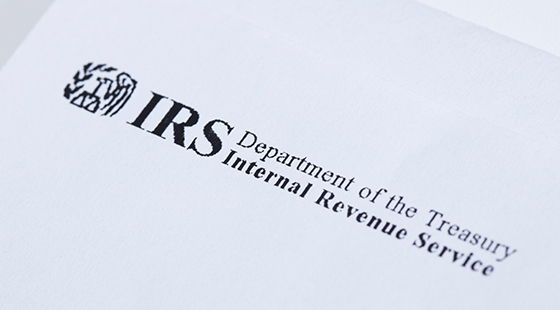
IRS Letter 226J: what about the constitutional due process hurdles to collecting employer shared responsibility excise taxes?
Given the Trump Administration’s opposition to PPACA, it is surprising that the IRS appears to be running ahead with collecting employer shared responsibility excise taxes. How and when did the IRS clear the constitutional due process hurdles?
Recall, PPACA Section 1411(i) acknowledged that an applicable large employer has a constitutional due process right to information necessary to accurately determine any shared responsibility penalty assessed. Specifically, an employer needs confirmation of an employee’s actual monthly household modified adjusted gross income (MAGI) to confirm whether it offered affordable coverage each month, and whether the employee was actually eligible for monthly premium tax credits — but PPACA prohibits the employer from obtaining that information. PPACA Section 1411(i) questioned whether a legislative change might be needed to allow collection of employer shared responsibility excise taxes. Further, PPACA Section 1411(e) and Code Section 4980H require procedural due process related to certifications, a process that in many cases never happened, or happened late.
IRS action by FAQ edit
Among other things, the updated FAQs provide:
- Through Letter 226J and Form 14765, the IRS is going to inform an employer that the government granted premium tax credits to an employee for each month.
- The IRS is not going to show the employer how the government determined that the employee was actually eligible for those credits under PPACA.
- The IRS is going to use substitutes for MAGI to determine whether the employer offered affordable coverage.
- The IRS is not going to provide MAGI to the employer, and it is not going to show how it calculated that the coverage offered by the employer was not affordable based on that MAGI.
- The IRS is placing the burden on the employer to demonstrate it is not liable for excise taxes, without the information it needs to do so (MAGI).
The IRS MAGI substitutes subject employers to greater excise taxes than permitted by PPACA
Years ago, the IRS created substitutes for MAGI to allow employers who chose to use the substitutes to determine whether they should reduce the cost of coverage to make it affordable for particular employees. If the IRS believe these MAGI substitutes (which it called “safe harbors”) solved the constitutional problem, I have trouble seeing how that happened. The substitutes may be substantially lower than actual MAGI. These are not really safe harbors in the context of assessing excise taxes, because they may subject employers to greaterexcise taxes than authorized by PPACA. Employers will be assessed excise taxes for scenarios where employees received premium tax credits for which they were ineligible, and for scenarios where the employer’s health care coverage was incorrectly deemed unaffordable. In other words, employers will be assessed excise taxes for which they are not liable under the terms of PPACA, and this is exactly why employers’ constitutional due process rights are so important.
Section 1411 certifications
Code Section 4980H provides that penalties are calculated for months for which the employee has been certified to the employer under PPACA Section 1411(e). PPACA Section 1411 requires certifications to inform employers that employees have been conditionally approved for premium tax credits, and to give employers an appeal process. In most states, those notices were never sent, or were sent late.
This was an important part of the procedural due process establish by PPACA, and the failure is not inconsequential. This would have alerted an employer that it needed to adjust the cost of its coverage to make it affordable based on household MAGI, and if MAGI had been disclosed, would have explained how much adjustment was required to make the coverage affordable. Of course, employers cannot appropriately adjust the cost of coverage if they are not given household MAGI, and do not elect a safe harbor that may require the employer to be much much more generous than required by PPACA.
Thus, even if the Section 1411(i) constitutional due process issue is resolved, query whether employers will argue that the certification procedural due process failure means the IRS does not have authority to assess excise taxes for a time period predating the employer’s receipt of a Section 1411 certification.
Action steps
I would not surprised to see these constitutional due process issues end up in litigation. That said, an employer that receive a Letter 226J will need to be prepared to move quickly to protect its rights, not all of which are explained in Letter 226J. We advise employers to watch for such letters, and to know that employers will only have 30 days to respond. Employers that receive letters may want to contact legal counsel, particularly if they are alleged to owe substantial amounts of excise taxes (or in IRS terms, “employer shared responsibility payments”).